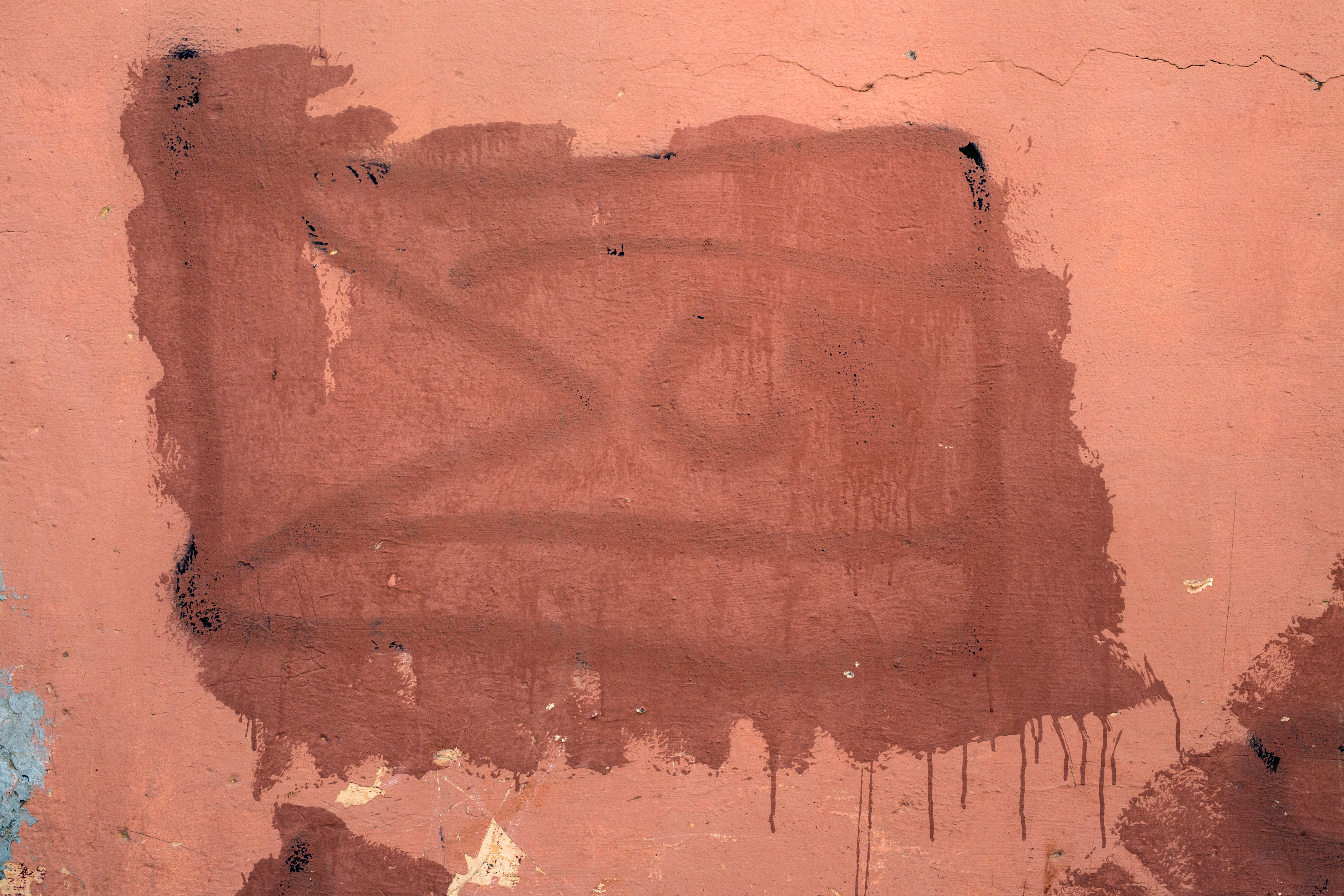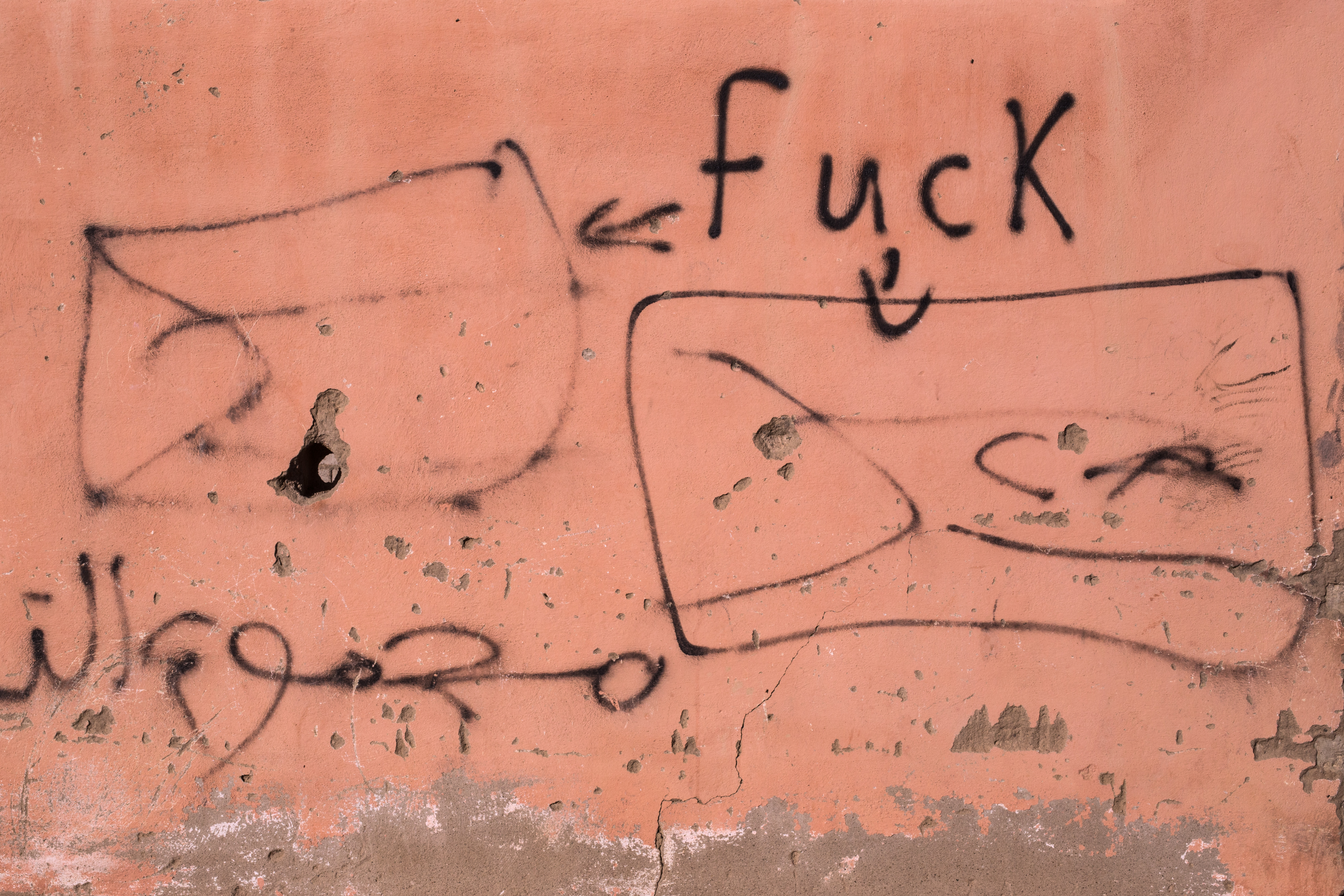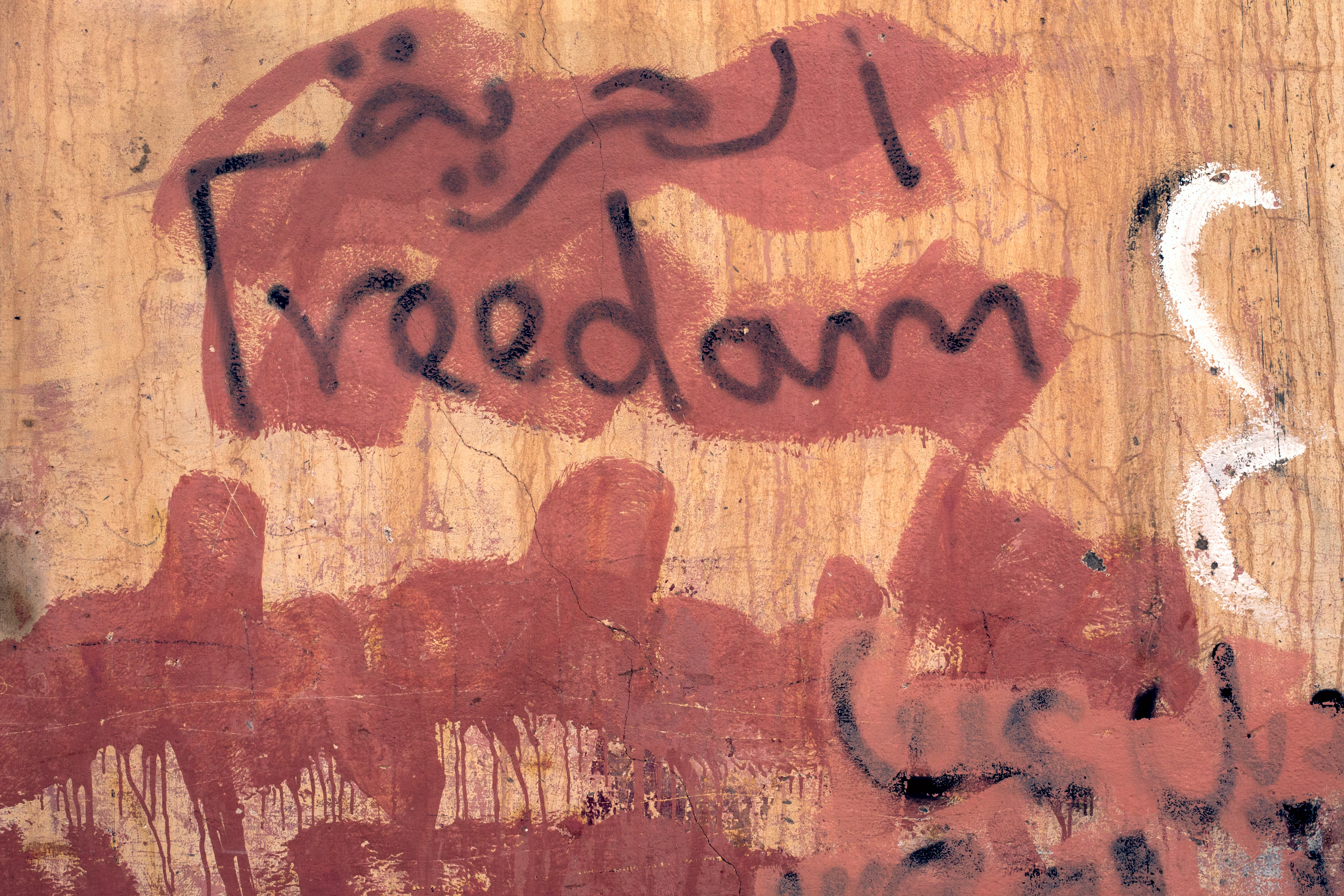POLITICAL
GRAFFITIS
2016 - 2017

In resistance to the Moroccan illegal occupation, pro independence messages cover the walls on a daily basis, and are rapidly censured by the police and the Moroccan settlers
Layers on layers, the walls are clumsily repainted, censored.
Like palimpsests, they symbolize the Moroccan attempt to make their inalienable right (the referendum for self-determination, which the UN is mandated to organize) invisible.
Trapped by the Moroccan separation wall, the colonized cities or the desert controlled by military zones, vandalism is a way for some Sahrawi activists to temporarily own back the occupied space.
Layers on layers, the walls are clumsily repainted, censored.
Like palimpsests, they symbolize the Moroccan attempt to make their inalienable right (the referendum for self-determination, which the UN is mandated to organize) invisible.
Trapped by the Moroccan separation wall, the colonized cities or the desert controlled by military zones, vandalism is a way for some Sahrawi activists to temporarily own back the occupied space.
Despite Morocco's investments in this territory and it’s extreme grip on the Sahrawi inhabitants, these graffiti illustrate the limits of enforced assimilation by a
colonial power.
The surveillance of the Moroccan security forces is constant, the freedoms of expression and assembly are restricted, the Sahrawi activism severely repressed. Doing graffiti is a risky act. Expressing one’s rights is recognizing the existence of Western Sahara as a separate entity from Morocco, which is viewed by the colonial power as an offense punishable by imprisonment for "undermining (Morocco's) internal security".
Painted flags, social or political demands, all the graffiti bear witness to the marginalization of the Sahrawi population and the violations of their rights.
The surveillance of the Moroccan security forces is constant, the freedoms of expression and assembly are restricted, the Sahrawi activism severely repressed. Doing graffiti is a risky act. Expressing one’s rights is recognizing the existence of Western Sahara as a separate entity from Morocco, which is viewed by the colonial power as an offense punishable by imprisonment for "undermining (Morocco's) internal security".
Painted flags, social or political demands, all the graffiti bear witness to the marginalization of the Sahrawi population and the violations of their rights.










